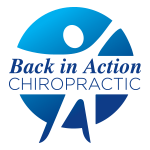Chiropractic and Headaches
Long-Term Relief for Your Wellbeing

Whether your headaches are from stress, too much sitting in front of a computer, or related to allergies or environmental sensitivities, taking pain medication may work… temporarily. Over the counter medication like aspirin, acetaminophen (Tylenol®), or Ibuprofen (Advil®) can relieve the pain from headaches; however, the pain has no reason NOT to return. You’ve merely avoided an uncomfortable and often debilitating problem. Chiropractic intervention is designed to not only relieve the symptoms of headache pain but also can prevent future headaches from occurring.
Nine out of 10 Americans suffer from the negative effects headaches cause. There are only about 5% of headaches that are warning signs of serious medical and physical concern. The other 95% can be addressed through means that can provide relief. These are called primary headaches (tension, migraine, or cluster) and are not caused by disease: the primary concern is the headache itself. Those are the headaches that a chiropractor can address and change on a long-term basis.
Some interesting facts about the different types of primary headaches:
- Chronic tension headaches can occur daily as you wake up or after a long day of work or activity.
- Episodic tension headaches are usually a result of a stressful event and are typically very painful.
- More women than men (about 75%) get migraines
- Migraines can be triggered by many factors including foods, alcohol, bright lights, weather changes, sleep changes, noise, odors, and more.
Common causes of headaches include:
- Dehydration
- Eating certain foods
- Environmental factors such as light and noise
- Old whiplash injuries
- Poor sleep habits
- Sitting with poor posture at a desk too long
- Spending too much time looking at your phone or computer
What can you do to prevent and/or relieve headache pain?
- Avoid teeth clenching.
- Drink at least eight 8-ounce glasses of water a day to help avoid dehydration
- Keep alcohol intake to a minimum
- Take a break from sitting (like at a computer) and stretch every 30 minutes to one hour.
- Use over-the-counter medicines
- Consider drug-free treatment: massage therapy, chiropractic treatment, physical therapy or acupuncture
- See a dentist: If you’re clenching your jaw and getting headaches, look for a dentist knowledgeable about temporomandibular joint (TMJ) syndrome
What can a chiropractor do for my headaches?
Your chiropractor will be able to assess, diagnose, and treat headaches. After a consultation with you to understand your individual and specific symptoms and concerns, a variety of preliminary assessments like x-rays will help understand more about your particular care.
The chiropractor likely will perform a spinal manipulation on your neck and/or back which is an effective headache treatment option for many sufferers. Furthermore, adjusting the alignment of your spine can improve spinal function and alleviate stress on the nervous system.
If your spine is misaligned (known as a subluxation), muscle tension and pain can occur. Your chiropractor will perform cervical adjustments and help relieve muscle tension. S/he also may suggest trigger point therapy and massage to help reduce misalignments.
Sinusitis (swelling of the sinus membrane) can cause pressure and pain in the face and head. Your chiropractor will perform an exam to determine the cause of the swelling and can apply pressure to the joints in the face, skull, and/or the spine to help relieve pressure and straighten misalignments. They also can insert balloons into the nasal passages and force open the sinus cavities. This method is called the nasal-specific technique, and it allows nasal passages to drain. Chiropractors also may activate other trigger points to release the pressure. They often recommend compresses (either warm or cold) to help ease sinus pressure as well.
If you have a concussion, (usually caused by severe upper body shaking or a sharp blow to the head) and have severe pain, dizziness, and/or vomiting, consult a medical professional to address the trauma. Seeing a professional is recommended even if you aren’t experiencing symptoms.
While headaches are not and should not be a normal part of life, in very rare cases they can signify a bigger issue like a brain tumor either benign (non-cancerous) or malignant (cancerous). These issues should be assessed and discussed with a medical professional who understands and can treat a brain tumor. Your chiropractor will consult with your primary physician and can help you develop a lifestyle that reduces your risk of cancer. Along with spinal manipulation therapy, chiropractors can help you with nutrition, exercise programs, and therapies to help you lead a long, healthy life.
Your chiropractor also can recommend other ways to improve your lifestyle regardless of where your headache pain originates. Proper diet and nutrition, exercise, quality sleep, and mindfulness can benefit us all and go a long way in alleviating headache pain.
Spinal manipulation will not only help with the current headaches you are experiencing but will reduce the risk of stress and tension building up and causing future headache pain as well. This is the key to using chiropractic care if you suffer from primary headache pain. Why wait for the pain to return? Call us today.
Request an Appointment Today
Contact Us
Call Us
Email Us
Office Hours
Monday |
9:00 AM - 12:00 PM 2:30 PM - 6:00 PM |
Tuesday |
9:00 AM - 12:00 PM 2:30 PM - 5:30 PM |
Wednesday |
9:00 AM - 12:00 PM 2:30 PM - 6:00 PM |
Thursday |
9:00 AM - 12:00 PM 2:30 PM - 6:00 PM |
Friday |
By Appointment Only |
Saturday |
Closed |
Sunday |
Closed |
Back In Action Chiropractic © 2025 | Privacy Policy | Accessibility
